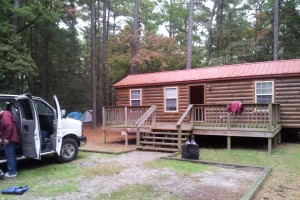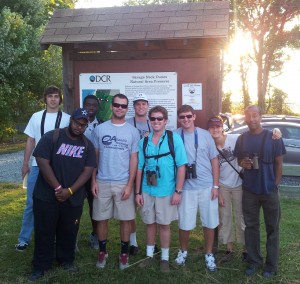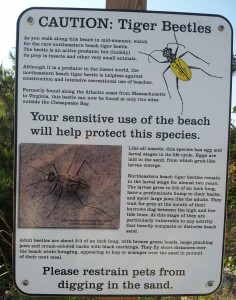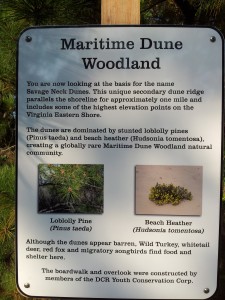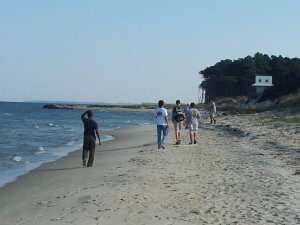The Biology Department was recently honored to welcome Dr. Lucia Barker from the Howard Hughes Medical Institute (HHMI) to campus for a site visit as part of Hampden-Sydney’s participation in the Science Education Alliance-Phage Hunters Advancing Genomics and Evolutionary Science (SEA-PHAGES) project. The visit gave Dr. Barker the opportunity to observe how the SEA-PHAGES project, in which ~80 schools nationwide isolate and characterize novel bacteriophage from the environment as part of ongoing research on bactteriophage diversity, has been implemented over the past two years at Hampden-Sydney.
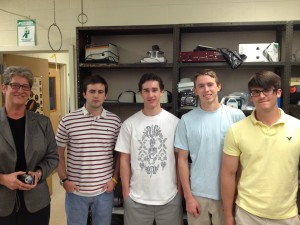
Dr. Barker with SEA-PHAGES students James Hughes ’14, Branch Vincent ’16, Kris Miller ’13, and Francis Polakiewicz ’14
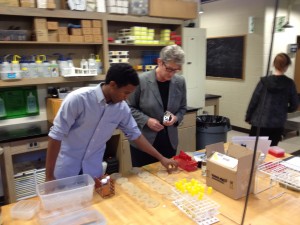
Myshake Abdi ’16 shows Dr. Barker his semester work on phage biology as part of the SEA-PHAGES project.
While at Hampden-Sydney, Dr. Barker also met with members of the Biology Department as well as President Chris Howard and Provost Dennis Stevens about strategies for further optimizing science education and research opportunity at Hampden-Sydney and how the HHMI could assist in this goal.

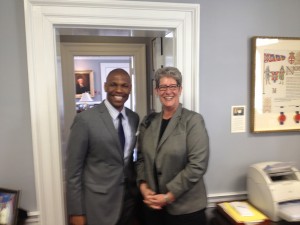
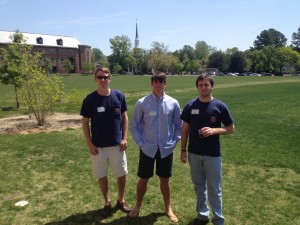
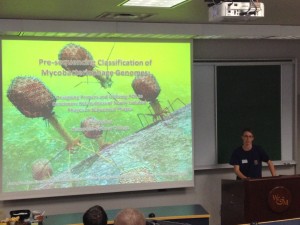
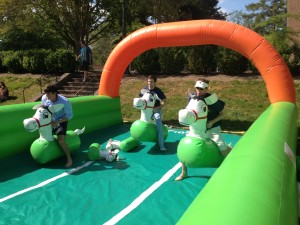
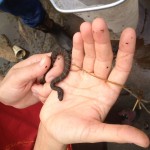
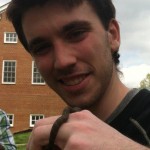
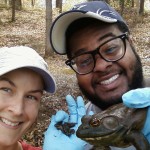
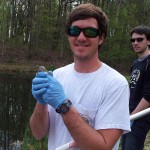
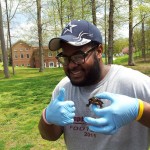
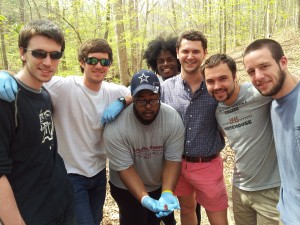
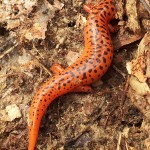
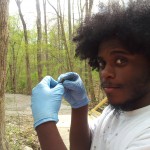

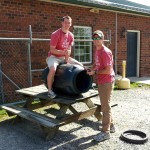
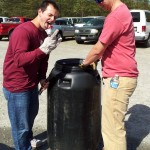
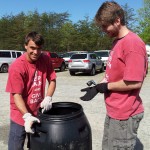

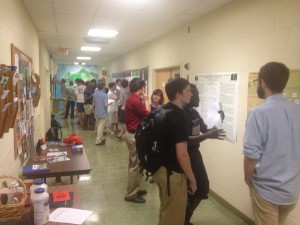
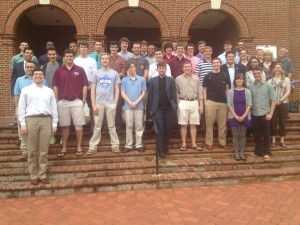
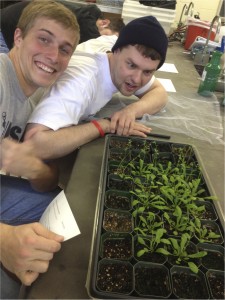
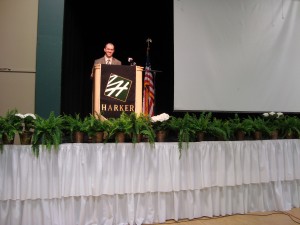
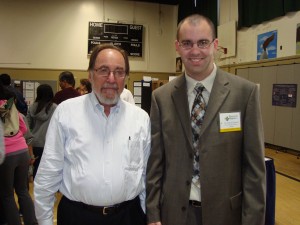
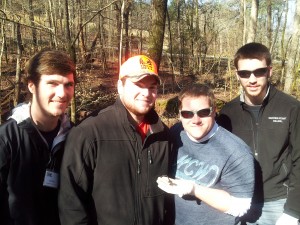
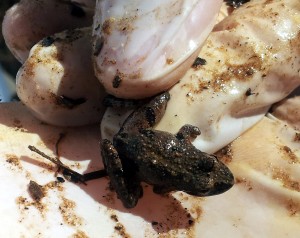
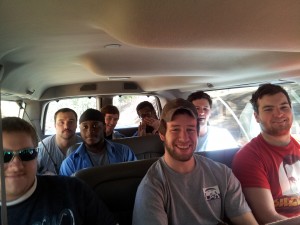
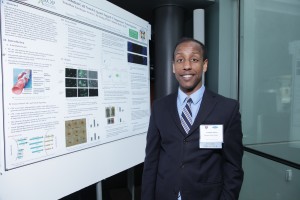
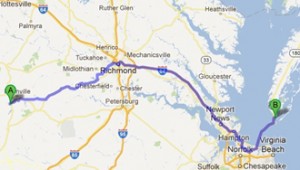 Dr. Goodman and students in her Ecology class (BIOL 203) took a 3-day field trip to the Eastern Virginia Birding & Wildlife Festival in October of 2012. They stayed in a rustic bunkhouse in Kipotpeke State Park and enjoyed campfire dinner, including first ever smores for a couple students!
Dr. Goodman and students in her Ecology class (BIOL 203) took a 3-day field trip to the Eastern Virginia Birding & Wildlife Festival in October of 2012. They stayed in a rustic bunkhouse in Kipotpeke State Park and enjoyed campfire dinner, including first ever smores for a couple students!